Making Climate the Everything Story
The news media needs to stop treating climate change as a niche topic—and start treating it as the most important story of our time.
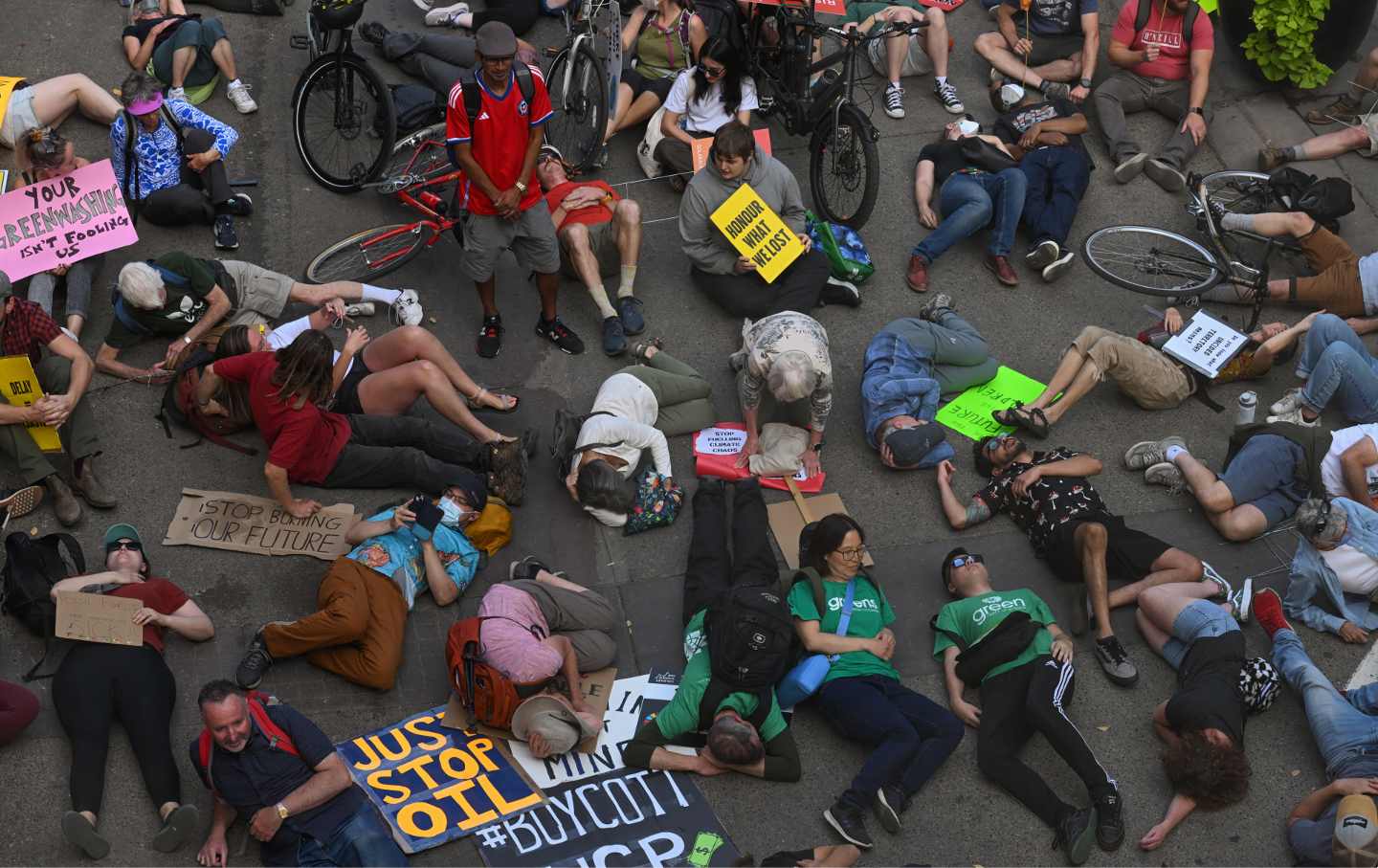
Activists lie down during a “Rally for Climate Sanity” outside the Town Hall of Calgary, Canada, on September 17, 2023, in opposition to the 24th World Petroleum Congress Opening Ceremony.
(Stringer / Anadolu Agency via Getty Images)The climate crisis has become inescapable in much of what we see, hear, and read. Don’t Look Up spent weeks as the most-streamed movie ever on Netflix. Pop star Billie Eilish sings about hills burning in California. At the bookstore, climate fiction has become a genre of its own, while Jeff Goodell’s The Heat Will Kill You First, a harrowing nonfiction account of what life on a warming planet will mean, is entering its second month on the New York Times bestseller list.
And where is journalism in all of this? Despite living through the hottest summer in history, as well as wildfires, tropical storms, and rapidly warming oceans, the news media continues to be outdone by popular culture when it comes to telling the most urgent story of our time. Inexplicably, climate change remains a niche concern for most mainstream news outlets. Most American TV coverage of this summer’s hellish weather did not even mention the words “climate change,” much less explain that the burning of oil, gas, and coal is what’s driving that hellish weather. Too many newsrooms continue to see climate as a siloed beat of specialists.
There are, of course, notable exceptions. The Guardian, for example, has long delivered abundant science-based, comprehensive coverage of the climate crisis as well as its solutions, as have other big global outlets such as the AFP news agency and Al Jazeera. But those outlets, as excellent as they often are, are among the outliers; much of the rest of media—particularly television, which, even in today’s digital era, remains the leading source of news globally for the largest number of people—struggle to find their climate footing.
We wish it were otherwise. As founders of Covering Climate Now, a global journalism collaboration formed to break the “climate silence” that long prevailed in the media, we’ve been working to help our colleagues throughout the news business amp up their coverage of the climate story.
In 2019, the media’s climate silence began to break, and in the past four years, we’ve seen encouraging successes: In the United States, major outlets including The Washington Post now treat climate change as a subject to cover every day and not solely as a weather story. Telemundo 51, a Spanish-language TV station in Miami, is pursuing an “all of newsroom” approach that encourages reporters on every beat to talk about climate change, including its solutions. Overseas, France Télévisions (France’s counterpart to Britain’s BBC) has jettisoned traditional weathercasts in favor of a daily “weather-climate bulletin,” where viewers can track global warming in real time as an eight-digit electronic counter shows how much today’s temperatures exceed the preindustrial average. (As of September 12, the number was 1.19829708 degrees Celsius.)
These mold-breaking innovations are notable, but they remain exceptions. Dramatic changes in climate have made increased news coverage of extreme weather unavoidable. But explaining the climate connection to extreme weather is a different task. News coverage needs to start systematically pointing out the links between changes in the weather and the decisions being made by industry, and government, that have overheated the planet.
As journalists, we have to do better. The broad, general public needs to understand what is happening, why it matters, and, above all, that they can help fix it—for example, by voting, by not buying unsustainable products, and by talking to friends and family about doing the same.
Journalism is at its best when it effectively explains and connects the dots between seemingly disparate events. That means, for instance, learning lessons from how the media covered Covid—also a sprawling, complicated story dictated by science. Nobody in the media debated the need to dedicate resources to helping audiences understand Covid and then playing the story big. Most outlets ran multiple Covid stories every day, which helped even casual news consumers understand that something important was happening. Journalists grounded our coverage in science, but we didn’t silo it on the science desk: We covered Covid as a health story, a politics story, a business, education, and a lifestyle story. And we talked not only about the problem but also about its solutions (e.g., masking, social distancing, vaccinations).
Climate coverage could take the same approach. Every newsroom in every community needs to think about climate change not as a beat but as a through line involving everything we do. No corner of the newsroom is exempt—not business or culture, not sports or city hall.
On the national level, journalism has to figure out how to make climate change central to our politics coverage. Next year will bring elections in the US, the UK, the European Union, India, Indonesia, Mexico, and Egypt that will have profound effects on the prospects for global climate action. Can politics reporters and editors scale back their fixation on horse-race coverage and instead provide the kind of coverage that voters need to make informed choices? Election coverage should help audiences understand what the candidates will do about the climate crisis if elected, not just what they say. It should hold candidates accountable not by asking them (as Fox did at the first US Republican debate last month) whether they believe in climate change but rather, “What is your plan to deal with the climate crisis?”
Overall, we also need much more and better coverage of climate solutions. Our colleagues at the Solutions Journalism Network have rightly criticized news coverage that talks only about what’s wrong. Understanding a problem is important, of course, but telling the whole story also requires examining how that problem might be fixed.
What else does “more and better” climate coverage mean? We expect some answers to emerge this week at “Climate Changes Everything: Creating a Blueprint for Media Transformation,” a conference at the Columbia Journalism School in New York cosponsored by Covering Climate Now; our founders, the Columbia Journalism Review and The Nation; our lead media partner, The Guardian; and the Solutions Journalism Network. Reporters and editors from news outlets worldwide—large and small, commercial and nonprofit—will chart a course for how journalists everywhere can tackle the climate story in ways that drive attention and impact and highlight solutions and justice. The assembled journalists will draw lessons and inspiration from some of the best climate coverage of the past year, as exemplified by winners of the 2023 Covering Climate Now Journalism Awards, which were just announced. (The conference will be livestreamed and recordings will remain available.)
With the planet on fire, more and better news coverage is itself an essential climate solution. Only when the general public understands what is happening, why, and what needs to be done can enough people compel governments and corporations to change course. Many news outlets have made significant progress in recent years. But the news industry as a whole is still not matching the scale of the crisis with the kind of coverage that’s required. Until that happens, journalism is letting down our readers, viewers, and listeners—and letting Netflix and Billie Eilish handle a job that’s ours to do.
More from The Nation
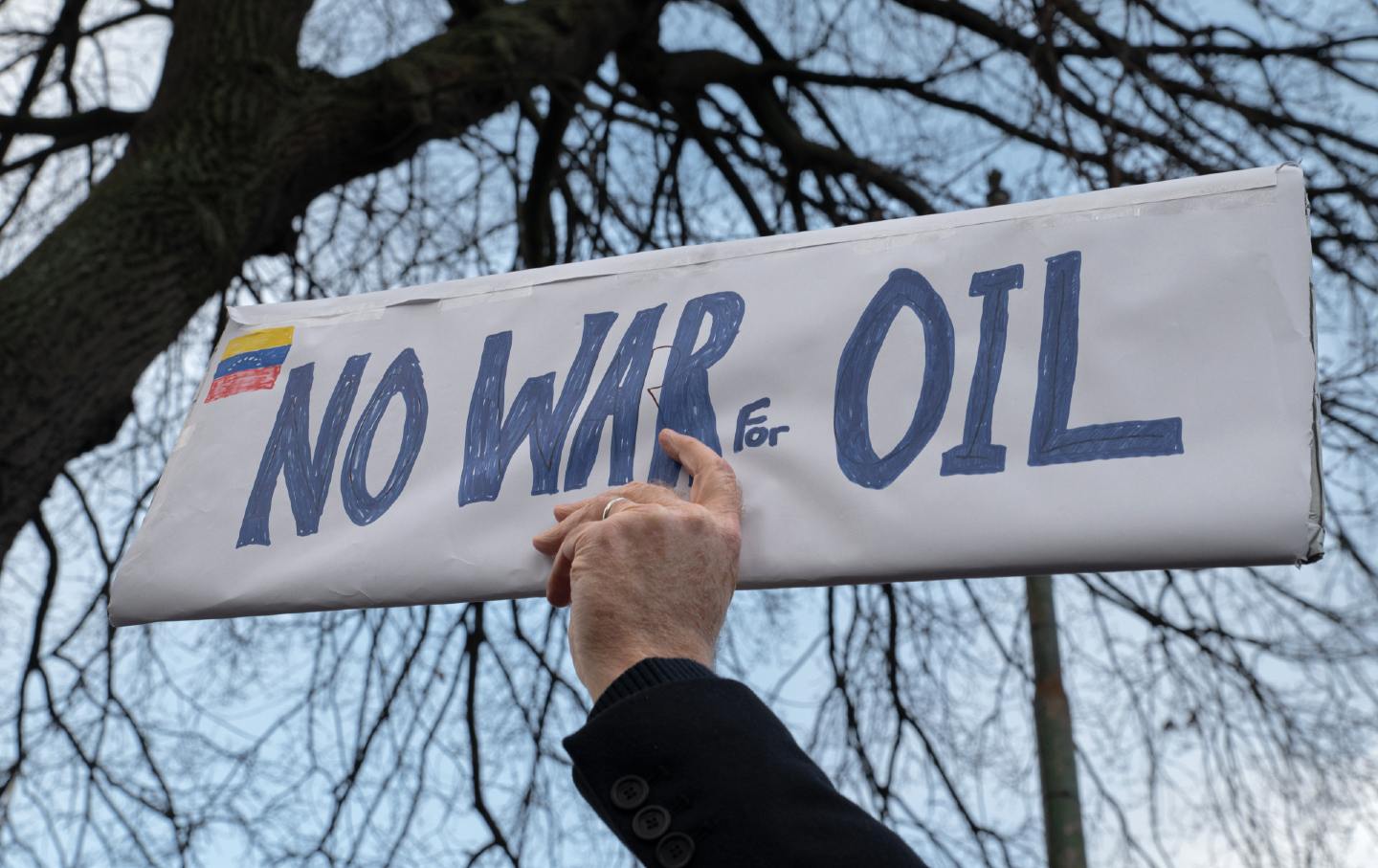
The US Is a Violent Petro-State The US Is a Violent Petro-State
Trump’s attack on Venezuela illustrates fossil fuels’ many perils.
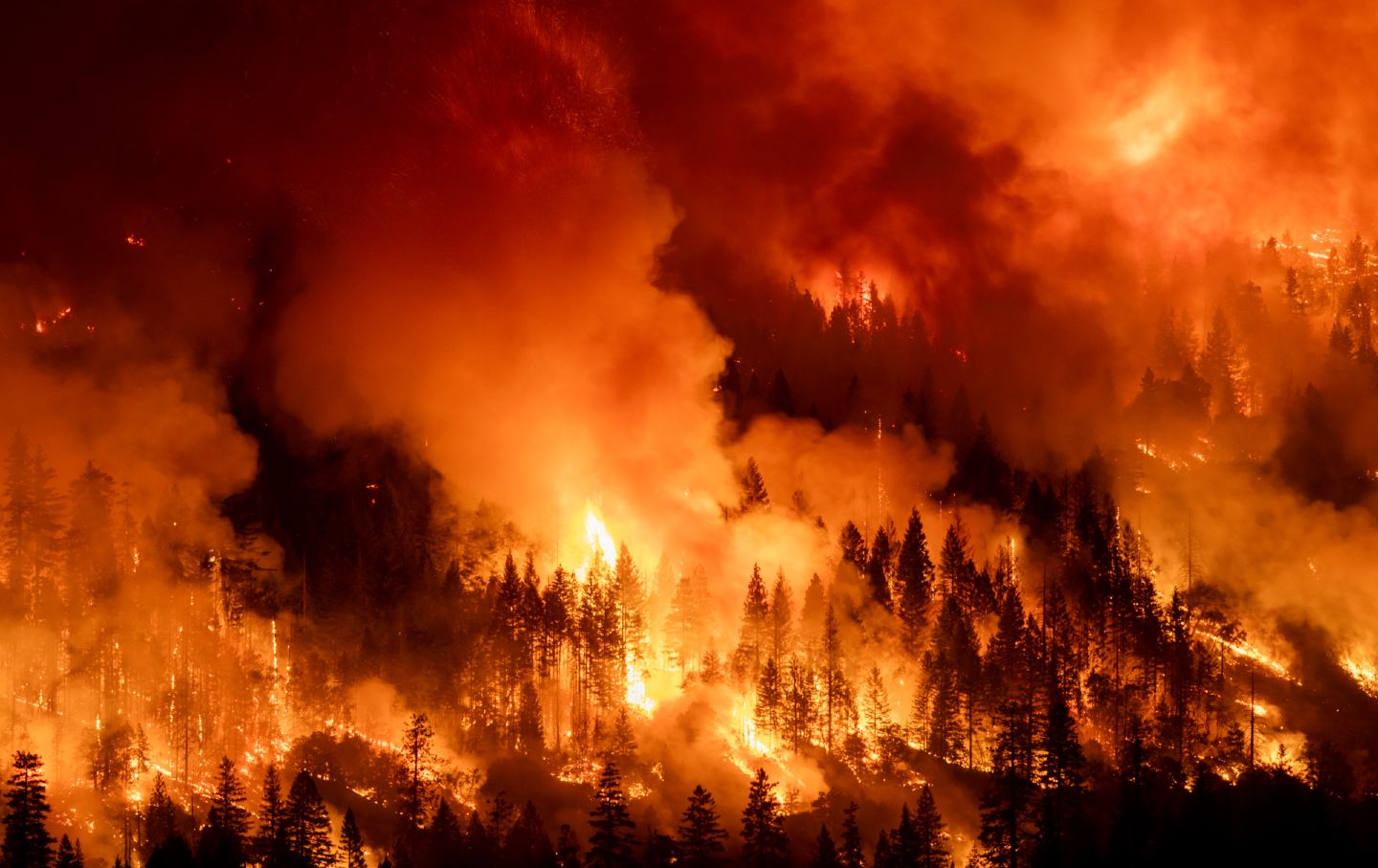
What Justice on a Burning Planet? What Justice on a Burning Planet?
Andreas Malm and Thea Riofrancos joined The Nation’s Wen Stephenson in an urgent conversation about the left and the climate emergency.
Q&A / Wen Stephenson, Andreas Malm, and Thea Riofrancos
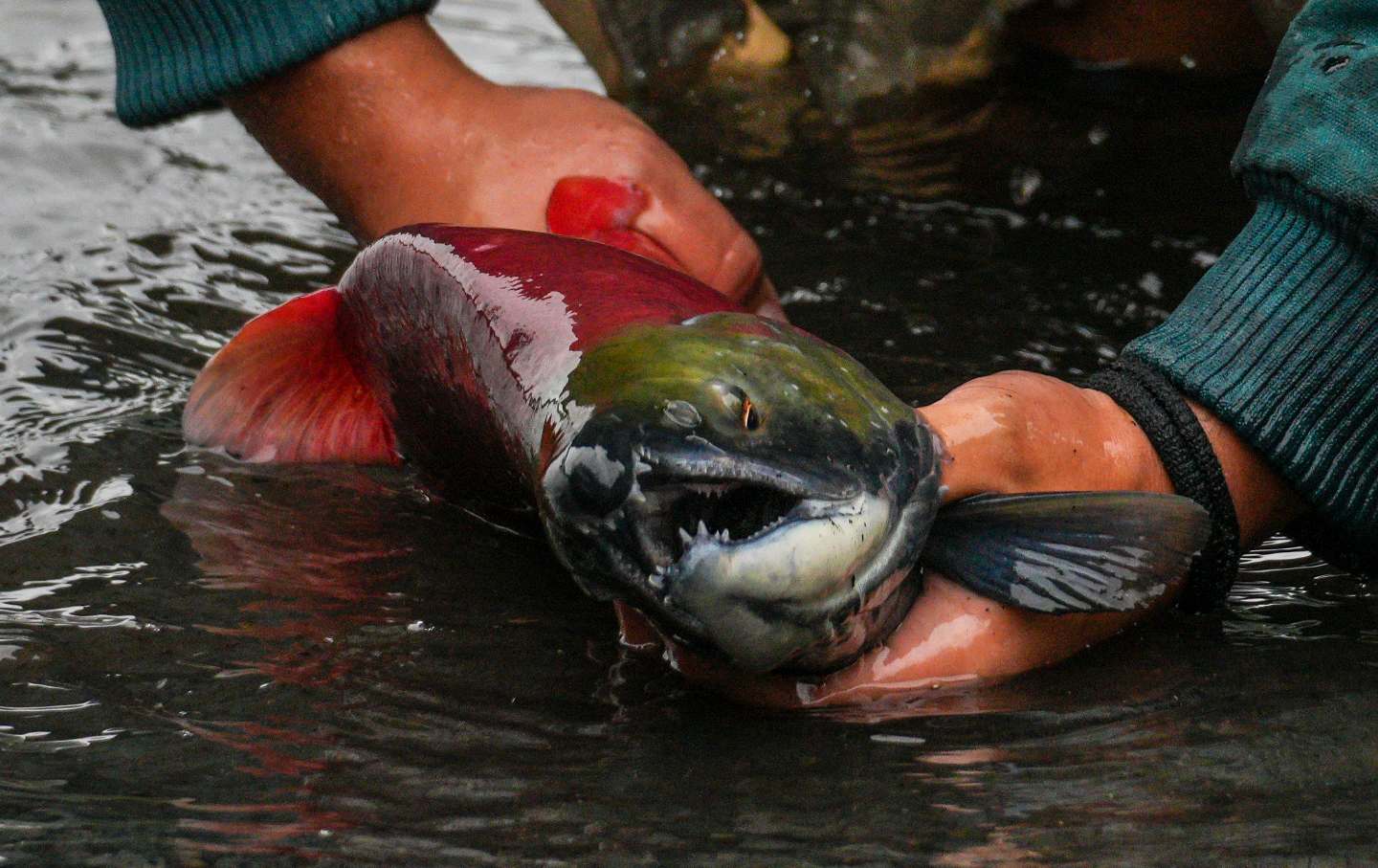
The Fight for the Last Wild Salmon The Fight for the Last Wild Salmon
In Alaska, the last stronghold for wild salmon, Native tribes and conservationists are working to save the fish from both climate change and decades of corporate greed.

What Your Cheap Clothes Cost the Planet What Your Cheap Clothes Cost the Planet
A global supply chain built for speed is leaving behind waste, toxins, and a trail of environmental wreckage.
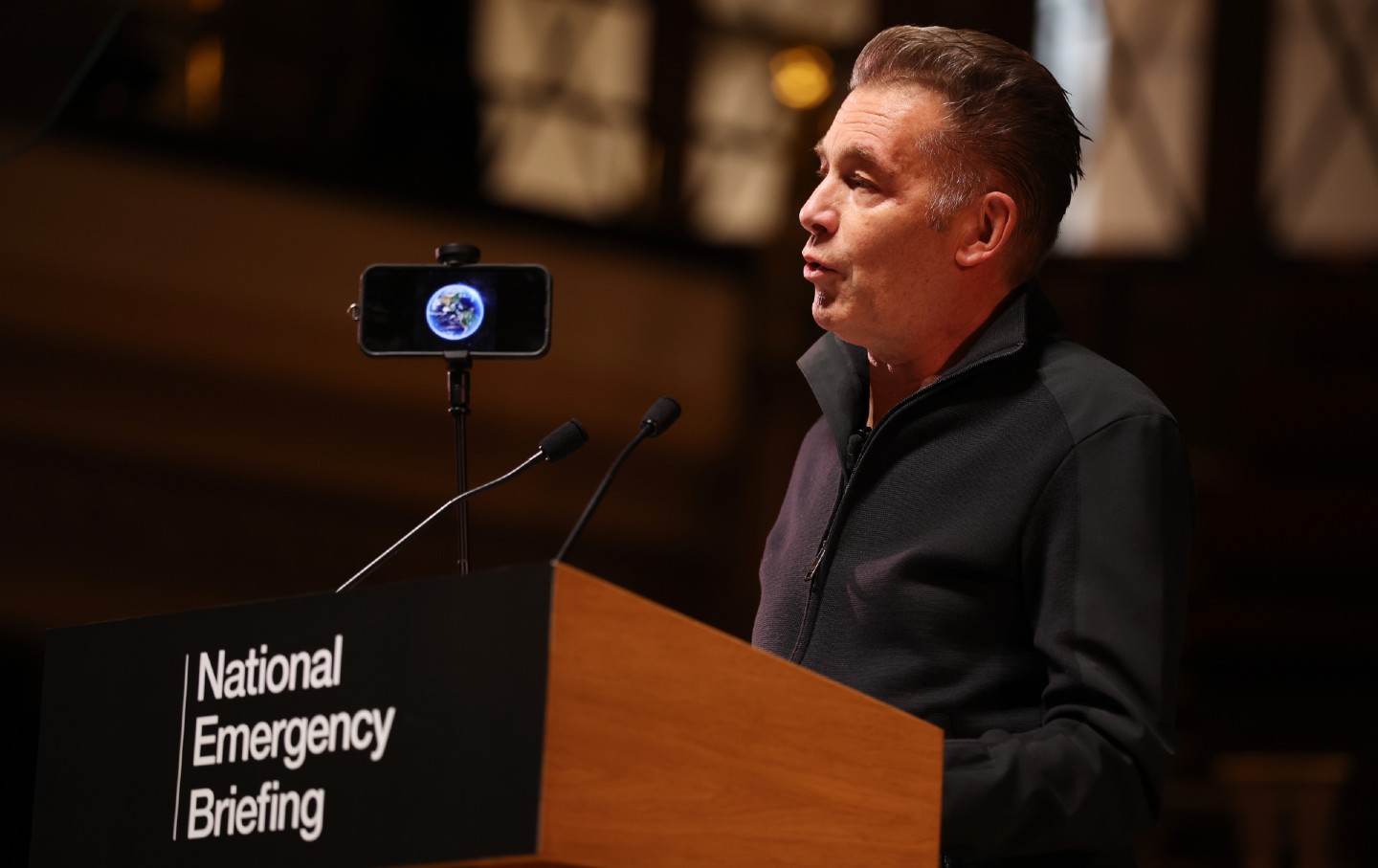
The UK’s Climate National Emergency Briefing Should Be a Wake-Up Call to Everyone The UK’s Climate National Emergency Briefing Should Be a Wake-Up Call to Everyone
The briefing was a rare coordinated effort to make sure the media reflects the science: Humanity’s planetary house is on fire, but we have the tools to put that fire out.
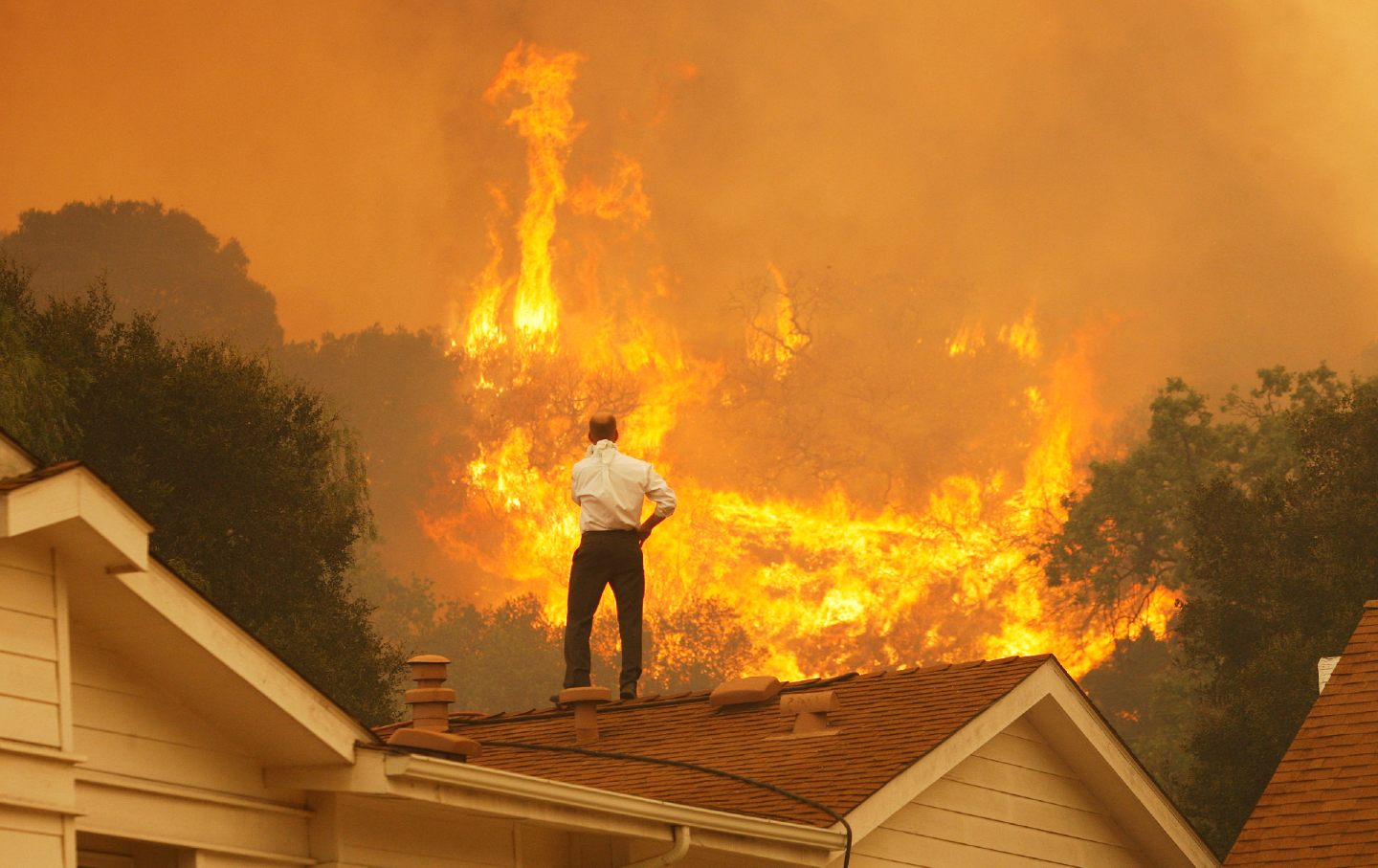
AI Will Only Intensify Climate Change. The Tech Moguls Don’t Care. AI Will Only Intensify Climate Change. The Tech Moguls Don’t Care.
The AI phenomenon may functionally print money for tech billionaires, at least for the time being, but it comes with a gargantuan environmental cost.


